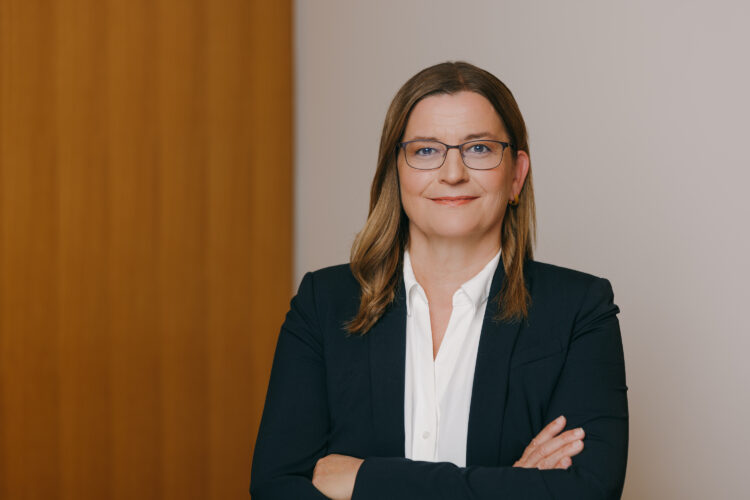Midwifery in Germany: what you need to know ahead of the Europe Regional Conference

With the ICM Regional Conference for Europe drawing near, scheduled for November 8-10 in Berlin, we had the honour of interviewing Ulrike Geppert-Orthofer, the President of the German Midwives Association (DHV). She shared valuable insights into the state of midwifery in Germany.
Exploring the practices and challenges of midwives in different contexts is crucial for reflecting on and improving standards of care within our own communities. Don’t miss the chance to learn from midwives in your region at the ICM Regional Conferences. This year, we are hosting two: one for Africa and the Eastern Mediterranean Region in Kigali, and one for Europe in Berlin. Next year’s destinations will be announced soon.
Tell us about the German Association of Midwives, when was the association created and how many members do you have?
The German Midwives Association (DHV) was founded in 1954. Reflecting Germany’s federal structure, the DHV serves as the head organization with the 16 federal states as members. Midwives themselves join the association through their respective state chapters, currently totalling over 22,000 members. Since 2023, the DHV has also offered membership to midwife-led birth centres. We are proud to say that out of approximately 115 birth centres in Germany, 81 are now members of the association.
What are the educational and training requirements for midwives in Germany?
In Germany, the education and training requirements for midwives are well-structured and regulated to ensure high standards of care. To apply for a midwifery program, candidates must have completed their secondary education. In some cases, a completed nursing training programme may also be sufficient.
Since 2020, midwifery training in Germany has been upgraded to a bachelor’s degree program in accordance with EU regulations, a significant change from the previous system where midwives were trained in vocational schools. The program typically lasts 3 to 4 years and is offered by universities of applied sciences.
Upon completion of the degree program, candidates must pass a state examination, which assesses their knowledge and practical skills. Successful candidates must then register with the relevant regional health authority to obtain a license to practice as a midwife in Germany.
Midwives are required to participate in continuing education to maintain and update their skills and knowledge, which includes attending courses, workshops, and conferences regularly. For those who completed their midwifery training before the introduction of the bachelor’s degree requirement, there are pathways to upgrade their qualifications through additional courses and certifications.
What initiatives or programs are in place to support midwives in Germany?
In Germany, midwives are required by law to be present at every birth, whether at home or in a hospital. Hospitals must ensure adequate midwifery staffing to meet this requirement. Several universities offer Master’s and PhD programs in Midwifery, and various federal state initiatives promote midwifery and physiological birth. These efforts are supported by intensive lobbying from the German Midwives Association (DHV) and the 16 regional midwifery associations.
This lobbying includes efforts to:
- Enhance cooperation between midwives and emergency services.
- Provide re-entry programs for midwives who have been out of practice for several years.
- Include midwives in school teaching programs to share their expertise on pregnancy, birth, and postpartum care.
Midwives also participate in civil society organizations, such as the Good Birth Alliance and various parents’ organizations, to improve care during pregnancy and birth, as well as working conditions for midwives. The DHV plays a key role in representing midwives’ interests, initiating support programs, and advocating for midwifery practice in Germany. Notable initiatives include:
- Establishing a nationwide network of alongside midwifery units.
- Developing criteria for a midwife-led birth centres.
The DHV maintains close dialogue with legislators, providing input on draft legislation to strengthen the role of midwives in primary care. They also negotiate with statutory health insurance schemes regarding service scope and payment for freelance midwives.
Women are eligible for midwifery assistance from the beginning of pregnancy through labour and up to one year postpartum. Health insurance covers services for up to 12 weeks after birth without additional justification. The DHV offers its members professional and legal advice, support with healthcare liability claims, access to a quality management system, and professional liability insurance.
Additionally, the DHV organizes training courses in skills, emergency response, and communication. Their biannual national midwifery congress is the largest in Europe. The German Society for Medical Education works to harmonize midwifery studies, while the German Society for Midwifery Science (DGHWi), founded in 2008, provides guidelines and organizes the International Symposium for Midwifery Science every two years. Both the DGHWi and DHV collaborate on developing and updating clinical guidelines with other medical professions.
What are the main challenges facing midwives in Germany?
In Germany, midwives face a few main challenges. Fair pay for both employed and freelance midwives is a significant issue, as is ensuring good working conditions in hospitals. Another challenge is achieving recognition for the quality and safety of out-of-hospital births. Additionally, persisting strong hierarchies in hospitals, universities, and society continue to pose difficulties for midwives.
What are your expectations for the upcoming ICM conference in Berlin and why do you think it will be an interesting event for midwives to attend?
We are delighted that colleagues from all over Europe will be coming to Germany for the upcoming ICM conference in Berlin. It will be a wonderful opportunity for midwives to meet, spend time together, learn, and engage in meaningful conversations. I am looking forward to an inspiring exchange and interesting presentations from other European midwives. Past experiences from the German Society for Midwifery Science (DGHWi) international symposium and the ICM Triennial Conference have shown that our colleagues greatly value the exchange with midwives from other countries. This conference will provide an excellent opportunity to expand our international network.
Don’t miss the opportunity to grow, learn, and connect at the Europe Regional Conference. Reserve your spot today and join us to learn from each other and build stronger midwife associations.